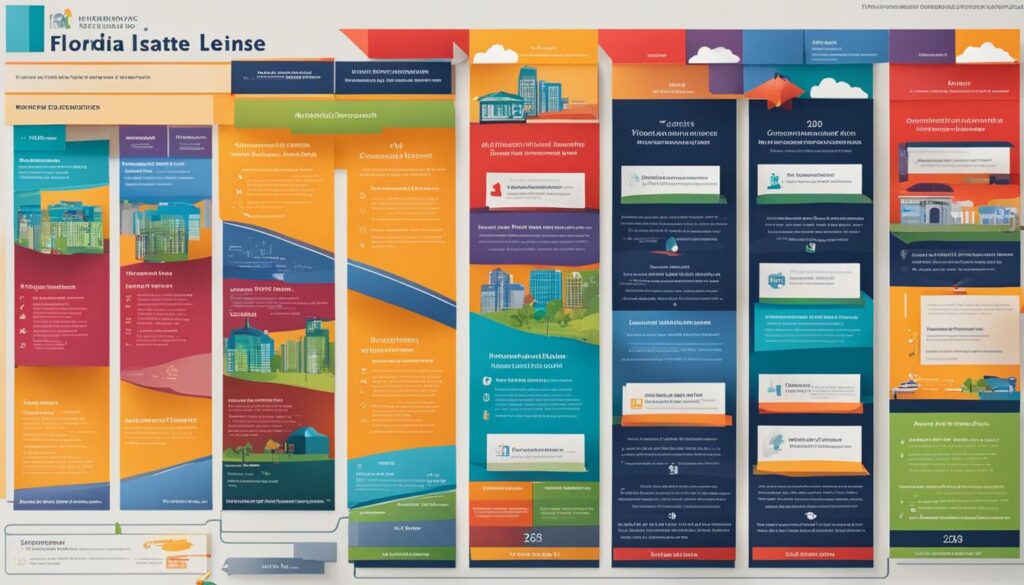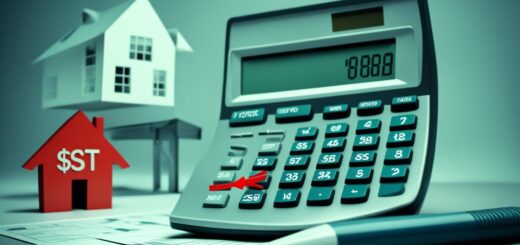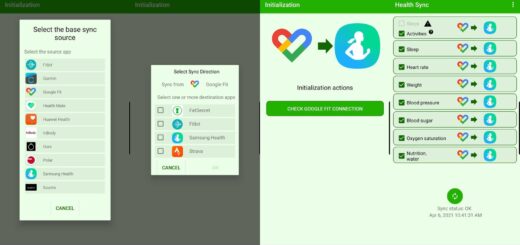Duration of Real Estate School Explained
Becoming a real estate professional in the United States requires completing real estate school, which provides the necessary education and training. The duration of real estate school varies depending on factors such as location, program type, and personal commitment.
Each state has its own requirements for real estate licensing, including the number of education hours needed. For example, in Florida, aspiring agents need to complete 63 hours of coursework, while broker licenses require 72 hours and two years of practical experience. The duration of real estate school can range from one to two months for agents, and potentially longer for brokers.
The cost of real estate school in Florida can range from $400 to $600. Real estate licenses in Florida are valid for two years and require renewal through continuing education courses. Florida also has reciprocity agreements with 10 states, allowing licensed agents from those states to obtain a Florida license with certain criteria.
Online and in-person options are available for real estate school, providing flexibility for individuals with different schedules and preferences. It is important to stay motivated, consistent, and utilize available resources throughout the real estate school journey for success.
Key Takeaways:
- The duration of real estate school varies based on location, program type, and personal commitment.
- Florida requires 63 hours of coursework for agent licenses and 72 hours for broker licenses.
- The cost of real estate school in Florida ranges from $400 to $600.
- Florida has reciprocity agreements with 10 states, allowing licensed agents to obtain a Florida license.
- Online and in-person options are available for real estate school.
Florida Real Estate License Requirements
When it comes to becoming a licensed real estate professional in Florida, there are specific requirements that aspiring agents and brokers must meet. These requirements help ensure that individuals have the necessary knowledge and skills to excel in the real estate industry.
- Sales Associate License Requirements:
- Minimum age of 18 years.
- Completion of 63 hours of real estate coursework.
- Passing a final exam.
- Undergoing a background check.
- Minimum age of 18 years.
- At least two years of experience as a licensed real estate agent.
- Completion of 72 hours of real estate coursework.
- Passing a final exam.
- Undergoing a background check.
The coursework for both licenses remains valid for two years after completion, providing individuals with ample time to pursue their licensing goals.
It is crucial to note that individuals must disclose any criminal convictions on their license application. Failure to do so can result in the denial of the application.
Florida has established these specific requirements to ensure that real estate professionals possess the necessary education, experience, and qualifications to serve clients effectively and uphold the integrity of the industry.
Additionally, the Florida Real Estate Commission governs the licensing process, following statutes and regulations to maintain standards within the real estate profession.
Key Takeaways:
- Aspiring real estate professionals in Florida must meet the requirements for a sales associate license or a broker license.
- The requirements include age, completion of education hours, passing an exam, and undergoing a background check.
- Criminal convictions must be disclosed on the license application.
- Florida establishes these requirements to ensure qualified and competent real estate professionals.
| License Type | Age Requirement | Experience Requirement | Coursework Hours |
|---|---|---|---|
| Sales Associate | 18 years or older | N/A | 63 hours |
| Broker | 18 years or older | Minimum two years as an agent | 72 hours |
Understanding and fulfilling these requirements are vital steps towards becoming a licensed real estate agent or broker in Florida.
How Long Does It Take to Get a Real Estate License in Florida?
The timeline for obtaining a real estate license in Florida can vary depending on individual circumstances. Generally, it takes about one to two months to become a licensed real estate agent (sales associate) in Florida. Becoming a licensed broker may take longer due to the additional requirements, such as two years of experience as an agent and additional coursework.
The process involves completing the required education, passing the licensing exam, and undergoing a background check. Preparing for the licensing exam may require additional time for studying and exam preparation. It is important to note that the duration of the licensing process may be affected by individual factors and the scheduling availability of exams.
Frequently Asked Questions About the Real Estate License Process in Florida
- Q: How long does it take to complete the required education?
- Q: How long do I have to wait after completing the education to take the licensing exam?
- Q: Can I shorten the timeline to get a real estate license in Florida?
A: The duration of the required education can vary depending on the program type and personal commitment. Generally, it takes about 63 hours of coursework for sales associate licenses and 72 hours for broker licenses in Florida.
A: Once you have completed the required education, you can schedule and take the licensing exam. The waiting period may vary depending on the availability of exam slots.
A: The timeline to obtain a real estate license in Florida is regulated by the state’s requirements. While individual circumstances may vary, it is important to fulfill all the necessary steps to ensure a successful and legally valid license.
“Patience, persistence, and preparation are the keys to success in obtaining a real estate license in Florida.”
Image:
| Step | Duration |
|---|---|
| Educational coursework | Approximately 63 hours for sales associate license Approximately 72 hours for broker license |
| Licensing exam | Varies based on individual preparation and scheduling availability |
| Background check | Processing time typically takes a few weeks |
| Total timeline | Approximately 1 to 2 months (varies depending on individual factors) |
Table: Timeline for Obtaining a Real Estate License in Florida
Cost of Getting a Real Estate License in Florida
Obtaining a real estate license in Florida comes with a financial commitment. Aspiring agents should be aware of the costs associated with getting licensed. The expenses can include:
- Tuition fees for real estate school
- Exam fees
- Fingerprinting costs
- Background check fees
The cost of real estate school, which includes the required coursework, can range from $400 to $600 in Florida. This investment is necessary to gain the knowledge and skills required for a successful real estate career.
In addition to the tuition fees, there are other expenses to consider. The exam fees typically range from $30 to $50. Fingerprinting costs can range from $5 to $60, depending on the method and location. Background checks may incur additional fees as well.
The total cost of obtaining a real estate license in Florida can vary depending on individual circumstances, such as the chosen educational provider and any additional study materials or resources. It’s important for individuals to budget and plan accordingly for these expenses in their journey to becoming a licensed real estate agent.
Cost Breakdown for Getting a Real Estate License in Florida
| Expense | Estimated Cost |
|---|---|
| Tuition for real estate school | $400 – $600 |
| Exam fees | $30 – $50 |
| Fingerprinting costs | $5 – $60 |
| Background check fees | Varies |
Real Estate License Reciprocity in Florida
In addition to the traditional licensing process, Florida offers real estate license reciprocity, allowing licensed agents from certain states to obtain a Florida license without going through the full licensing process. This reciprocity agreement is beneficial for agents who want to expand their real estate career into Florida without starting from scratch.
Florida has reciprocity agreements with 10 states, including Alabama, Arkansas, Connecticut, Georgia, Illinois, Kentucky, Mississippi, Nebraska, Rhode Island, and West Virginia. Agents from these states can take advantage of this agreement to transfer their license to Florida.
To obtain a Florida license through reciprocity, there are certain criteria that need to be met. First, individuals must be at least 18 years old and not be a Florida resident. Additionally, they must hold an active real estate license from one of the states with a reciprocity agreement.
One of the requirements for obtaining a reciprocal license in Florida is passing a Florida-specific exam. This exam tests the agent’s knowledge of Florida’s real estate laws, regulations, and practices. Background checks and fingerprinting are also part of the process to ensure the eligibility and integrity of the applicants.
Real estate license reciprocity provides a streamlined path for licensed agents from other states to expand their business and work legally in Florida. By transferring their license, agents can leverage their existing qualifications and experience to tap into Florida’s robust real estate market.
Benefits of Real Estate License Reciprocity in Florida
Real estate license reciprocity in Florida offers several benefits to licensed agents:
- Expanded Market: With a Florida license, agents can tap into the lucrative real estate market in the state, which attracts millions of residents and tourists every year.
- Flexibility and Mobility: Transferring a license allows agents to work in multiple states and regions, providing flexibility and the opportunity to explore different markets.
- Career Advancement: Having a license in Florida opens doors to new career opportunities, such as working with high-end properties or specializing in a specific market.
- Professional Networking: Joining the real estate community in Florida provides opportunities for networking and collaborating with top professionals in the industry.
Real estate license reciprocity in Florida is a valuable option for licensed agents looking to expand their business and explore new opportunities in the Sunshine State. By meeting the criteria and successfully navigating the application process, agents can transfer their license and embark on a successful real estate career in Florida.

Applying for a Florida Real Estate License
Obtaining a real estate license in Florida is a multi-step process that involves submitting an application and completing the necessary requirements. Here is a step-by-step guide to applying for a Florida real estate license:
-
Choose your license type: Determine whether you want to become a licensed real estate agent (sales associate) or a broker. Each license type has specific requirements and responsibilities.
-
Complete the required coursework: Florida requires aspiring real estate professionals to complete a certain number of educational hours before applying for a license. For a sales associate license, you need to complete 63 hours of coursework; for a broker license, you need 72 hours and two years of practical experience.
-
Prepare your application: Visit the Florida Department of Business & Professional Regulation’s website to access the online application and follow the instructions. You can also choose to submit a paper application by mail.
-
Submit your application: Fill out the application accurately, providing all the necessary information. Double-check for any errors or missing details. Submit the application online or by mail as instructed on the application site.
-
Application review process: The review process typically takes four to six weeks. During this time, your application will be processed, and a background check will be conducted.
-
Schedule and pass the licensing exam: Once your application is approved, you will receive instructions to schedule your licensing exam. The exams in Florida are administered by Pearson VUE and can be taken in person or online. Passing the exam is a crucial step in obtaining your real estate license.
-
Receive your license: Once you have passed the licensing exam, your license will be automatically issued within seven to ten business days.
-
Activate your license: To practice real estate in Florida, you must activate your license. This requires submitting an additional application, typically filled out by your employer (broker or real estate firm), to the Florida Department of Business & Professional Regulation.
By following these steps and carefully completing the application process, you can obtain your Florida real estate license and begin your career as a licensed real estate agent or broker in the state.
Renewal and Continuing Education Requirements
Renewing and maintaining your real estate license in Florida is crucial to continuing your career and staying up-to-date with industry standards. Let’s explore the renewal process and the continuing education requirements for real estate agents in Florida.
Florida real estate licenses are valid for a period of two years. To ensure that you don’t miss the renewal date, the state notifies license holders via email in advance. It is essential to keep an eye on your inbox and mark your calendar to stay on top of the renewal process.
When it comes to renewal fees, agents are required to pay $32, while brokers pay a slightly higher fee of $36. These fees are necessary to maintain an active real estate license in Florida.
Florida has specific continuing education requirements for agents and brokers. For the first renewal, agents must complete 45 hours of approved continuing education coursework, while brokers need to complete 60 hours. These courses cover various topics, including updates on industry trends, changes in real estate laws, and best practices for ethical conduct.
After the initial renewal, subsequent renewals require agents and brokers to complete 14 hours of approved continuing education. These courses aim to enhance your knowledge and skills as a real estate professional, ensuring you remain competent and well-informed in your field.
Completing continuing education courses not only fulfills the state’s requirements but also provides you with the opportunity to stay updated with the latest developments in the real estate industry. It enables you to better serve your clients, maintain ethical standards, and enhance your overall professional growth.

It is crucial to complete the continuing education requirements within the specified timeframe to maintain an active real estate license in Florida. Failure to do so may result in the expiration of your license, which would require you to go through the licensing process again.
Continuing education not only benefits you as a real estate professional but also instills confidence in your clients, who rely on your expertise to guide them through various real estate transactions. By prioritizing continuing education, you demonstrate your commitment to excellence and ensure that you are equipped with the knowledge and skills to deliver exceptional service.
Overall, the renewal and continuing education requirements in Florida play a vital role in maintaining the integrity of the real estate industry. By fulfilling these requirements, you actively contribute to enhancing professionalism, staying updated with industry standards, and providing the best possible service to your clients.
Additional Considerations for Real Estate Licensing in Florida
When pursuing a real estate license in Florida, there are several additional considerations and unique aspects to be aware of. These special requirements and exemptions can impact the licensing process and the career path of real estate agents and brokers in the state.
- Exemptions for Attorneys: Attorneys who are members of the Florida Bar in good standing have certain exemptions from the requirements for becoming a licensed real estate agent or broker. These attorneys have permission to sit for the exam immediately, without having to fulfill college classes. However, it is important to note that attorneys are still required to pass the relevant exam and complete the post-licensing education within the first renewal year.
- Florida-specific Statutes and Regulations: Florida has its own specific statutes and regulations that govern real estate. It is essential for all professionals in the industry to be aware of these laws to ensure compliance and a lawful career in real estate. The Florida Real Estate Commission provides a comprehensive guide covering these laws, serving as a valuable resource for real estate agents and brokers.
Exemptions and Unique Aspects of Real Estate Licensing in Florida
| Exemptions/Unique Aspects | Description |
|---|---|
| Exemptions for Attorneys | Attorneys who are members of the Florida Bar in good standing can sit for the exam immediately, without fulfilling college classes. However, they still need to pass the exam and complete the post-licensing education within the first renewal year. |
| Florida-specific Statutes and Regulations | Florida has its own specific laws that govern real estate, and all professionals in the industry should be familiar with these regulations to ensure compliance and a lawful career. |
Understanding these additional considerations and unique aspects of real estate licensing in Florida is crucial for individuals pursuing a successful career in the industry. Being aware of exemptions, specific regulations, and the need for ongoing education will contribute to a lawful and thriving real estate practice in the state.
Conclusion
Obtaining a real estate license in Florida is a crucial step towards starting a successful career in the industry. The duration of real estate school can vary depending on individual circumstances, program type, and personal commitment. In Florida, prospective agents are required to complete 63 hours of coursework, while broker licenses require 72 hours and two years of practical experience.
The timeline for obtaining a real estate license in Florida typically ranges from one to two months. During this time, aspiring agents must complete the necessary education, pass the licensing exam, and undergo a background check. The cost of real estate school in Florida can range from $400 to $600, which includes the required coursework.
Florida also has reciprocity agreements with 10 states, allowing licensed agents from those states to easily obtain a Florida license. However, certain criteria must be met, such as being at least 18 years old, not being a Florida resident, and passing a Florida-specific exam. Additionally, continuing education requirements ensure that real estate professionals stay updated with industry trends and laws, and attorneys in good standing with the Florida Bar have special exemptions and requirements for obtaining a real estate license.
To embark on a successful career in Florida’s real estate industry, it is important to follow the application process accurately, stay committed to the education and training requirements, and familiarize oneself with the state’s specific laws and regulations. By doing so, individuals can pave the way for a rewarding and prosperous journey in the world of real estate.
FAQ
How long does real estate school take?
The duration of real estate school varies depending on factors such as location, program type, and personal commitment. In Florida, for example, aspiring agents need to complete 63 hours of coursework, while broker licenses require 72 hours and two years of practical experience. The duration of real estate school can range from one to two months for agents, and potentially longer for brokers.
What is the cost of real estate school in Florida?
The cost of real estate school in Florida can range from 0 to 0. This cost includes the required coursework. Additional expenses may include exam fees, fingerprinting costs, and any other required background checks. The total cost of obtaining a real estate license in Florida can vary depending on individual circumstances and chosen educational provider.
How long does it take to become a licensed real estate agent in Florida?
Generally, it takes about one to two months to become a licensed real estate agent (sales associate) in Florida. This timeline includes completing the required education, passing the licensing exam, and undergoing a background check. Preparing for the licensing exam may require additional time for studying and exam preparation.
Does Florida have reciprocity agreements for real estate licenses?
Yes, Florida has reciprocity agreements with 10 states, allowing licensed real estate agents from those states to obtain a Florida license under certain criteria. The states with reciprocity agreements are Alabama, Arkansas, Connecticut, Georgia, Illinois, Kentucky, Mississippi, Nebraska, Rhode Island, and West Virginia.
How do I apply for a Florida real estate license?
The application process for a Florida real estate license can be done online or by mail. The application site for the desired license provides access to the online application and mailing instructions. The application review process typically takes four to six weeks, after which individuals can schedule their licensing exam. The licensing exams in Florida are administered by Pearson VUE and can be taken either in person or online.
What are the renewal requirements for a Florida real estate license?
Real estate licenses in Florida are valid for two years. The state notifies license holders via email when the renewal date is approaching. Renewal fees for agents are , while brokers pay . Florida requires agents to complete 45 hours of approved continuing education coursework for their first license renewal, and brokers need 60 hours. Subsequent renewals require 14 hours of approved continuing education for both agents and brokers.
Are there any additional considerations for real estate licensing in Florida?
Yes, Florida has specific statutes and regulations governing real estate that all professionals in the industry should be aware of. Attorneys who are members of the Florida Bar in good standing have special exemptions and requirements for obtaining a real estate license. Familiarizing oneself with these additional considerations is crucial for a successful and lawful career in the industry.
What are the key takeaways from the real estate licensing process in Florida?
To summarize, the duration of real estate school in Florida can vary depending on individual circumstances, program type, and personal commitment. The cost of real estate school ranges from 0 to 0. It takes about one to two months to become a licensed real estate agent in Florida. Reciprocity agreements allow agents from certain states to obtain a Florida license. The application process can be done online or by mail. Renewal requirements include completing continuing education coursework. And finally, it is important to be aware of the additional considerations and requirements for real estate licensing in Florida.
















It's great that you talked about how business insurance can provide financial protection against unexpected events and help ensure the…
I like that you mentioned how business insurance is essential for protecting your bottom line and the long-term viability of…